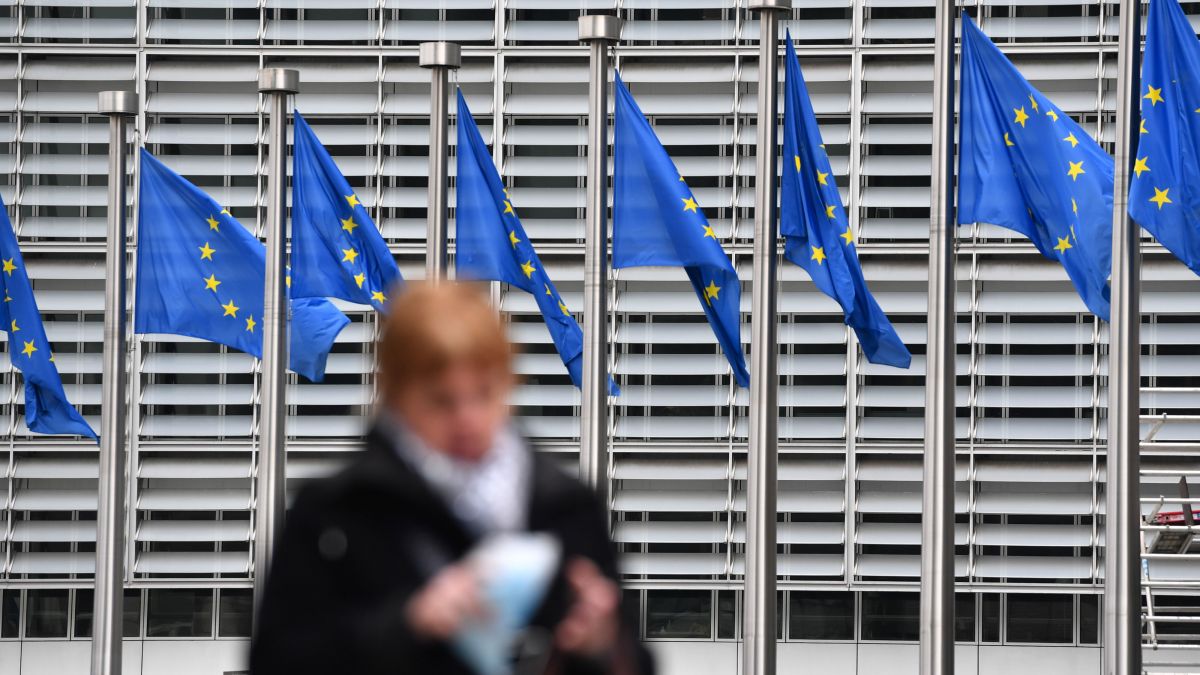Countries suspend application of AstraZeneca vaccines 2:11
London (CNN) -
Vaccine delivery in Europe is "unacceptably slow," the World Health Organization (WHO) said on Wednesday, delivering a damning assessment on the covid response in the region, amid a surge " worrisome »of infections.
Many European countries have struggled to carry out effective vaccination programs, as pharmaceutical companies have repeatedly delivered less than planned in scheduled shipments.
The region has vaccinated only 10% of its population with a single dose in a regimen of two, the WHO said in a statement.
“Vaccines represent the best way out of this pandemic.
Not only do they work, but they are also very effective in preventing infections.
However, the deployment of these vaccines is unacceptably slow, ”WHO Regional Director for Europe Dr. Hans Henri P. Kluge said in the statement.
“And as long as coverage remains low, we must apply the same public health and social measures that we had in the past, to compensate for the delays in schedules.
Let me be clear: we need to speed up the process by increasing manufacturing, reducing barriers to vaccine administration, and using every single vial that we have in stock now. "
A dangerous variant of covid-19 wreaks havoc in parts of Europe and Canada.
Experts fear the US is next
AstraZeneca: UK backs vaccine 0:38
Dorit Nitzan, regional director of Emergencies for WHO in Europe, warned that just five weeks ago that new cases in Europe had dropped to less than 1 million, but now with more mobility, meetings during religious holidays and the presence of the Variant B.1,1.7 –identified for the first time in the United Kingdom–, poses a greater public risk.
Last week there were 1.6 million new cases in the region and almost 24,000 deaths.
advertising
"This variant is more communicable and can increase the risk of hospitalization, has a greater impact on public health, and additional actions are required to control it," said Nitzan.
As the deployment of vaccination grows in Europe, the WHO calls for early action to implement social and public health measures.
France re-enacts confinement measures throughout the country due to the increase in coronavirus
Europe: When would you resume vaccination with AstraZeneca?
(March 2021) 1:20
Vaccination is uneven in Europe, says WHO
The statement added that 27 countries in Europe are in partial or total national lockdown, with 21 imposing night curfews.
In the last two weeks, 23 countries have stepped up restrictions, while 13 have relaxed measures, and nine more will follow suit.
The vaccination rate is uneven throughout the region.
The United Kingdom, for example, has administered more than 30 million vaccines, giving more than 58% of its adult population at least one injection in the two-dose regimen.
In contrast, the European Union has administered almost 70 million doses, just over 13% of the adult population of the 27-nation bloc.
Some countries, like Serbia, seem to have been more successful.
The country now offers excessive doses to neighboring nations.
A weak point in the EU program is its heavy reliance on vaccines by British-Swedish pharmaceutical company AstraZeneca.
The European Union ordered at least 300 million doses of AstraZeneca, but the company's deliveries have been tens of millions of doses below agreed quarterly targets.
AstraZeneca has cited lower-than-expected yields from its European Union plants as the reason for the shortfall.
It appears to be delivering, as scheduled in the UK, which it ordered 100 million doses from the company.
AstraZeneca has publicly said that it is prioritizing the UK market with UK manufactured doses.
Other pharmaceutical companies have also delivered fewer doses to the European Union.
France is approaching the peak of the wave
France toughens measures to combat the pandemic 0:51
French Health Minister Olivier Veran said on Thursday that France could peak its current wave of the virus in the next 10 days.
He made the remarks as the country woke up to tighter restrictions amid a surge that has hit the country's hospitals.
French President Emmanuel Macron announced a partial quarantine on Wednesday night after ICU admission numbers surpassed the 5,000 mark and doctors called on the government for more restrictive measures.
"We could reach the epidemic peak in about 7 to 10 days, if all goes well," Veran told the public radio station France Inter.
"Then it takes another two weeks to peak ICU, which could happen at the end of April."
"I believe that the measures announced last night by the President of the Republic will have a strong impact on the dynamics of the epidemic," he added.
Macron had resisted a nationwide lockdown similar to those seen in countries such as Germany and the United Kingdom.
Instead, the country had imposed restrictions on parts of the country.
Almost 44% of all COVID-19 patients in French intensive care units are under the age of 65, Macron said.
He insisted that France had made the "right decisions" so far, but added that in recent weeks vaccination has "accelerated" and "things have changed."
- CNN's Martin Goillandeau contributed to this report.
Covid-19 Coronavirus Vaccine

